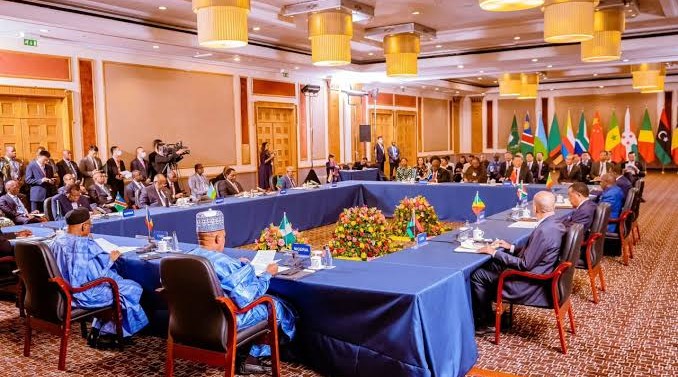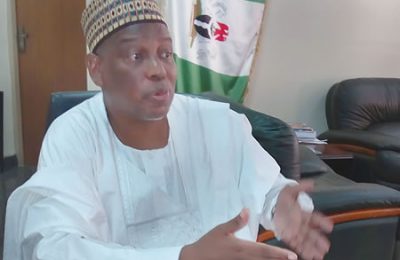
Vice-President Kashim Shettima says Nigeria remains committed to collaborating with China to ensure that the objectives of the partnership are achieved for the benefit of both parties.
“These align with the ‘Renewed Hope’ mantra of the President Bola Tinubu’s Administration, the African Union’s Agenda 2063, and the United Nations Sustainable Development Goals 2030,” said the vice-president. “They are relevant to our continental and national development aspirations.”

Mr Shettima said this at the China-Africa Leaders’ Roundtable Dialogue Meeting on the margins of the BRICS Summit in Johannesburg, South Africa, according to a statement from the Vice-President Office.
Mr Shettima spoke to a large audience at the Sandton Convention Centre, including President Xi Jinping of China, and some African leaders on the theme, ‘Promoting African Integration and Jointly Building a High-Level Africa-China Community with a Shared Future’.
Mr Shettima said, “Nigeria welcomes the new initiatives introduced by the Chinese authorities, which include supporting and promoting the modernisation of Africa’s agriculture and agribusiness sectors. It also supports the provision of robust support for Africa to expedite regional integration and backing Africa’s industrialisation and infrastructure expansion.”
The vice-president commended the existing partnership between China and Africa, particularly “the three newly-identified initiatives and priority areas of cooperation between China and Africa in agriculture, industrialisation, and human capacity development.”
Mr Shettima added that Nigeria endorsed China and anticipated forging a close collaboration.
“This collective efforts will elevate the Africa-China comprehensive strategic and cooperative partnership to unprecedented heights, driven by our mutual pursuit of economic prosperity,” he stated.
He identified critical areas for the prevailing partnership between Africa and China to include fostering synergy among the pertinent national institutions tasked with formulating, coordinating, and implementing national policies in the three priority areas of cooperation and encourage efforts that promote African ownership of these initiatives.
(NAN)







